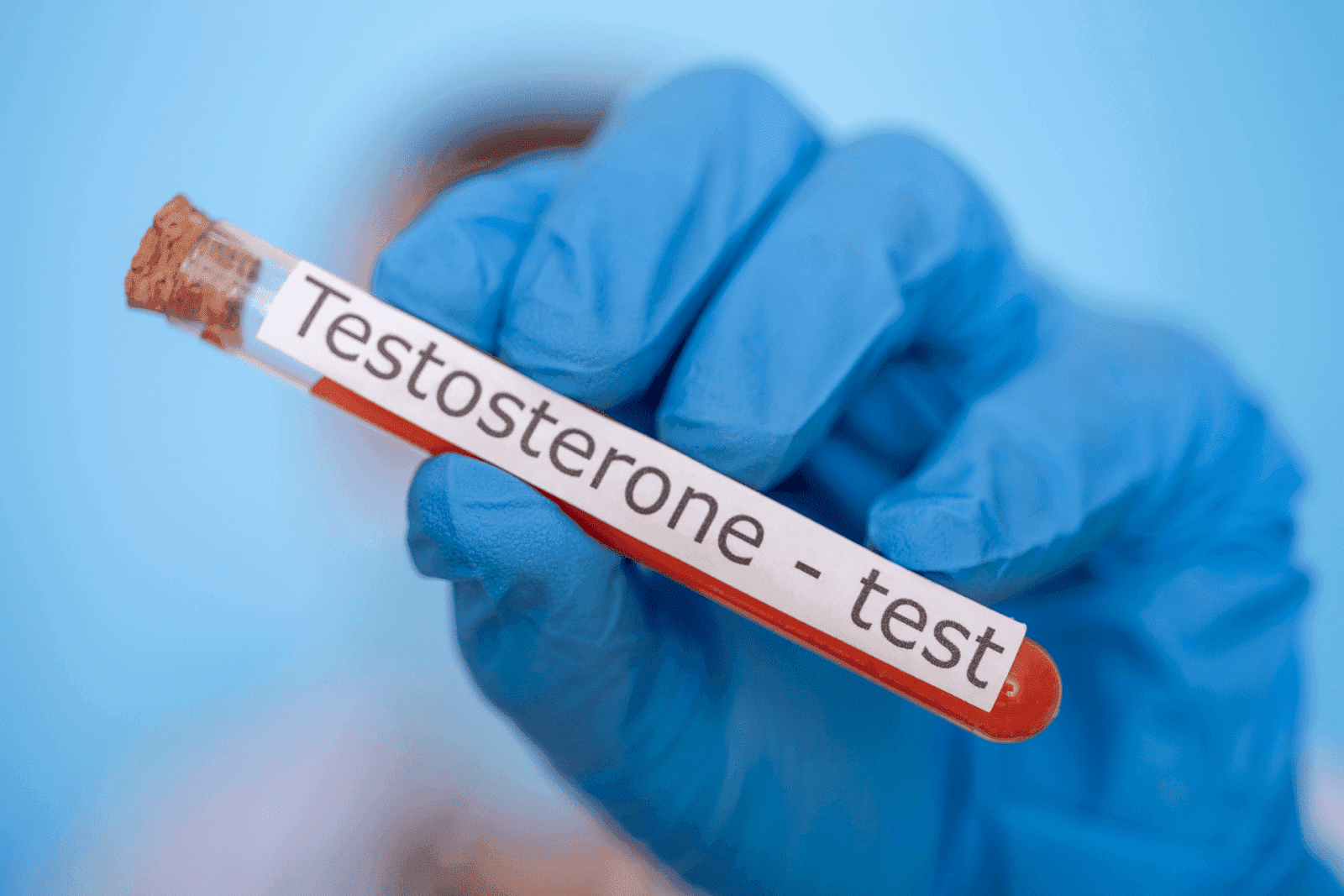Do Onions Really Boost Testosterone?
Many people wonder if eating onions can actually help increase testosterone levels. Testosterone is an important hormone for both men and women, affecting muscle strength, [...]
Read More
Medically reviewed by Alan Lucks | MD, Alan Lucks MDPC Private Practice - New York on November 15th, 2025.
Animal studies using rats and rabbits showed 17-76% increases in testosterone levels after consuming onion extract for 20-28 days, but these results haven't been replicated in human trials.
Quercetin, the primary antioxidant in onions at roughly 20-30mg per medium bulb, may protect Leydig cells that produce testosterone from oxidative damage in laboratory settings.
Proven testosterone optimization requires strength training 3-4 times weekly, maintaining vitamin D levels above 30 ng/mL, and consuming 11-15mg of zinc daily through diet or supplements.
Clinical low testosterone (hypogonadism) is diagnosed when total testosterone drops below 300 ng/dL on two morning blood tests, requiring medical intervention beyond dietary changes.
Quality sleep of 7-9 hours nightly can increase testosterone production by 10-15%, as most hormone synthesis occurs during deep sleep phases.
Many people wonder if eating onions can actually help increase testosterone levels. Testosterone is an important hormone for both men and women, affecting muscle strength, energy, and overall health. This article explores the truth behind onions and their impact on testosterone, backed by science and expert insights.
Testosterone is a hormone mostly known for its role in male health. It helps build muscle, maintain bone density, and support mood and energy levels. Women also produce testosterone, but in smaller amounts. Low testosterone can lead to fatigue, weak muscles, and other health issues. In men, testosterone levels peak in early adulthood and gradually decline with age, which can contribute to various physical and emotional changes. This hormone is not only crucial for physical health but also plays a significant role in mental well-being, influencing everything from libido to cognitive function.
Because testosterone influences many parts of the body, people look for natural ways to keep it balanced. Diet is one area that many believe can help. Foods rich in zinc and vitamin D, such as oysters, fatty fish, and fortified cereals, are often recommended to support testosterone production. Additionally, healthy fats found in avocados and nuts can also play a role in hormone regulation. Lifestyle changes, including regular physical activity and stress management techniques like yoga or meditation, can further enhance testosterone levels and overall health.
 Common Causes of Low Testosterone
Common Causes of Low TestosteroneAging, which naturally lowers hormone levels
Stress and poor sleep
Poor diet and lack of exercise
Medical conditions like obesity or diabetes
Understanding these causes helps in finding effective ways to support healthy testosterone levels. For instance, chronic stress can lead to elevated cortisol levels, which may inhibit testosterone production. Similarly, inadequate sleep can disrupt the body's natural hormone cycles, further exacerbating low testosterone symptoms. Addressing these lifestyle factors can be a powerful step toward restoring balance. Furthermore, certain medical conditions, such as hypogonadism, can directly affect hormone levels and may require medical intervention. Regular check-ups and blood tests can help monitor hormone levels and guide appropriate treatment options.
Onions have been used in traditional medicine for centuries. Some studies suggest they might influence testosterone, but how strong is the evidence?
Research on onions and testosterone mostly comes from animal studies. For example, some tests on rats showed that onion juice helped increase testosterone levels. This effect might be due to antioxidants in onions, which reduce inflammation and improve blood flow.
However, human studies are limited. The few available suggest onions might have a mild positive effect, but more research is needed to confirm this.
Antioxidants: Onions contain compounds like quercetin that fight free radicals, which can damage cells and hormones.
Improved Blood Flow: Better circulation can help organs function well, including those that produce hormones.
Reduced Stress: Some onion compounds may lower stress hormones, indirectly supporting testosterone.
While onions can be part of a healthy diet, they are not a magic solution for boosting testosterone.
In addition to their potential hormonal benefits, onions are packed with vitamins and minerals that contribute to overall health. They are a rich source of vitamin C, which is essential for immune function and skin health. Furthermore, onions contain B vitamins, including folate and pyridoxine, which play crucial roles in energy metabolism and the synthesis of neurotransmitters. This nutrient density makes onions a valuable addition to various dishes, enhancing both flavor and nutritional content.
Moreover, onions have been linked to various health benefits beyond hormone health. Studies have shown that regular consumption of onions may help reduce the risk of chronic diseases such as heart disease and diabetes. Their high fiber content supports digestive health, while their anti-inflammatory properties may contribute to lower levels of chronic inflammation in the body. This multifaceted profile makes onions not only a flavorful ingredient but also a functional food that can support overall well-being.
If you want to maintain or improve your testosterone levels, there are several proven lifestyle habits to consider.
Eating a diet rich in whole foods, including lean proteins, healthy fats, and plenty of fruits and vegetables, supports hormone health. Foods like eggs, nuts, and leafy greens are known to help maintain testosterone. Additionally, incorporating foods high in zinc, such as oysters and pumpkin seeds, can further enhance testosterone production, as zinc plays a crucial role in hormone regulation. Antioxidant-rich foods, like berries and dark chocolate, can also combat oxidative stress, which may negatively impact testosterone levels.
Strength training and high-intensity workouts are especially effective at increasing testosterone. Staying active also helps manage weight and reduce stress. Engaging in compound movements, such as squats and deadlifts, can stimulate larger muscle groups and promote greater hormonal responses. Moreover, incorporating activities like sprinting or interval training can boost testosterone levels even more, as these forms of exercise challenge the body and promote muscle growth.
Testosterone production happens mostly during sleep. Getting enough rest and managing stress through relaxation techniques can keep hormone levels steady. Aim for 7-9 hours of quality sleep each night, and consider establishing a calming bedtime routine to improve sleep quality. Techniques such as meditation, yoga, or even deep-breathing exercises can significantly reduce cortisol levels, a hormone that, when elevated, can inhibit testosterone production.
If you suspect low testosterone, it is important to talk with a healthcare provider. They can run tests and recommend treatments if necessary. In some cases, lifestyle changes alone may not be sufficient, and medical interventions such as hormone replacement therapy may be considered. Regular check-ups can help monitor hormone levels and overall health, ensuring that any potential issues are addressed promptly.
For convenient access to medical advice, consider using Doctronic.ai. This AI-powered telehealth service offers fast, personalized care and can help answer questions about hormone health anytime, anywhere. With the rise of telemedicine, patients can now receive expert guidance without the need for in-person visits, making it easier to prioritize their health and well-being.
 How to Include Onions in Your Diet
How to Include Onions in Your DietEven if onions only have a small effect on testosterone, they are nutritious and tasty. Adding them to your meals is easy and beneficial for overall health. Some people don't tolerate onions well and can become gassy or have diarrhea.
Add raw onions to salads or sandwiches for crunch and flavor
Cook onions with vegetables, meats, or in soups
Use caramelized onions as a topping on dishes like burgers or pizzas
Onions also provide vitamins C and B6, fiber, and minerals, which support general wellness.
Feeling tired, weak, or noticing other symptoms related to low testosterone? It is important to get a proper diagnosis. Self-treating with foods alone might not be enough.
Telehealth services like Doctronic.ai make it easy to consult with licensed doctors from home. You can discuss symptoms, get lab test recommendations, and receive personalized care plans without waiting weeks for an appointment.
Onions are healthy and may support hormone balance in small ways, but they are not a guaranteed way to boost testosterone. A balanced lifestyle with good nutrition, exercise, and sleep is the best approach.
If you have concerns about your testosterone levels, professional medical advice is key. Telehealth options like Doctronic.ai provide fast, affordable access to expert care.
Onions may have some mild benefits, but they are unlikely to significantly raise testosterone by themselves. A healthy lifestyle is more important.
Onions are generally safe, but some individuals get digestive discomfort with gas and diarrhea.
A blood test ordered by a healthcare provider can measure testosterone. Telehealth services like Doctronic.ai can help you get started with testing.
Foods rich in zinc, vitamin D, and healthy fats, such as nuts, eggs, and fatty fish, support testosterone production.
Yes, Doctronic.ai offers quick access to doctors who can provide advice, order tests, and guide treatment for hormone-related concerns.
While onions contain beneficial antioxidants, current scientific evidence doesn't support them as an effective testosterone booster in humans. Focus on proven strategies like resistance training, adequate sleep, and proper nutrition for hormone optimization. If you're experiencing symptoms of low testosterone, Doctronic can help connect you with healthcare providers for proper evaluation and testing.
Many people wonder if eating onions can actually help increase testosterone levels. Testosterone is an important hormone for both men and women, affecting muscle strength, [...]
Read More